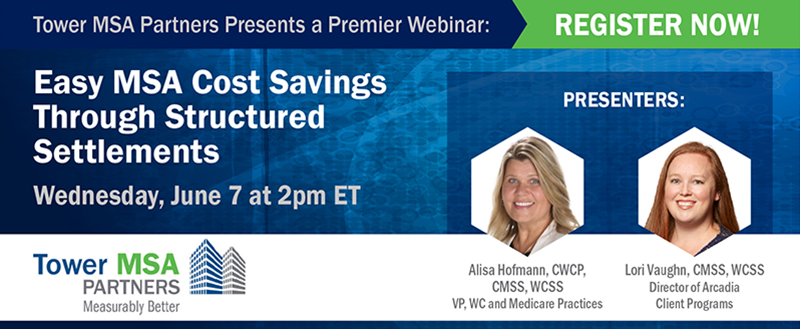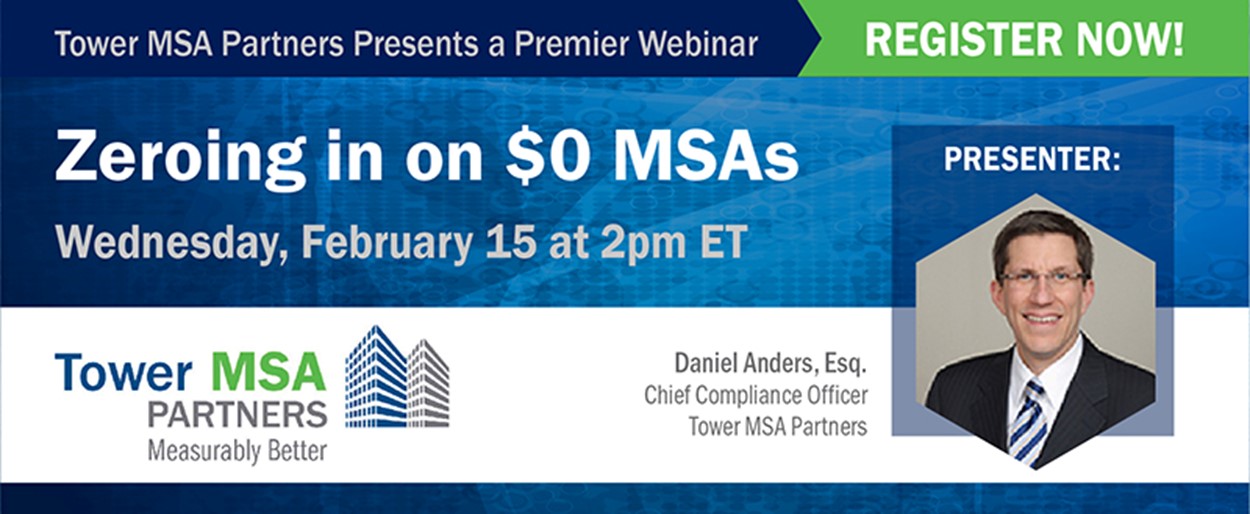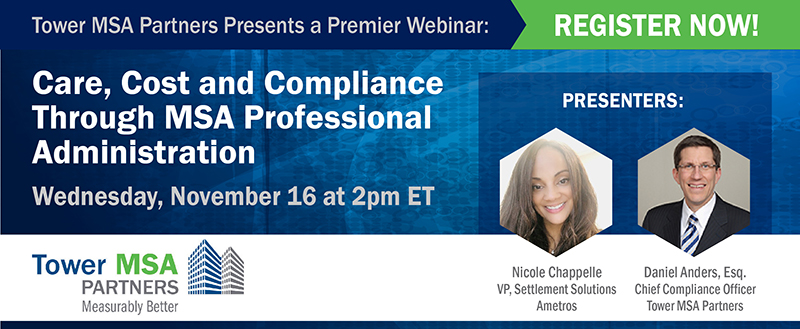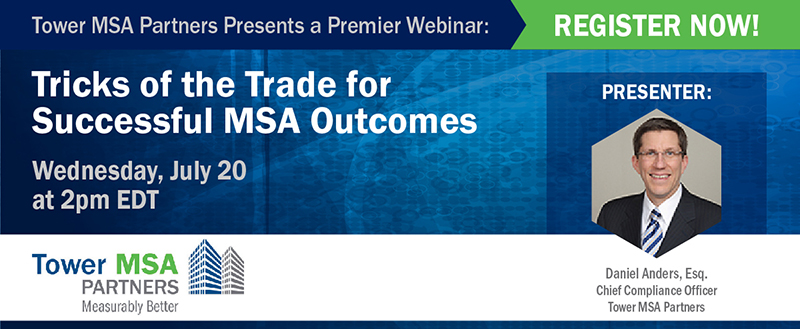It’s time to get everything set up to accommodate new Section 111 reporting fields for WCMSAs. While compliance has long been required, Civil Money Penalties (CMPs) are real now.
Tower’s Chief Technology Officer Jesse Shade joined our Chief Compliance Officer Dan Anders for the “Premier Webinar: Get Ready for Section 111 Reporting Penalties and WCMSA Reporting” to help attendees do just that. Here are the highlights:
Important Section 111 penalty and WCMSA reporting dates
October 11, 2024
The date that CMS starts to make Responsible Reporting Entities (RREs) accountable for the timely reporting of ongoing responsibility for medicals (ORM) and of the Total Payment Obligation to the Claimant (TPOC). Any claims with ORM or TPOC on or after October 11, 2024, can be audited and subject to penalties.
April 1, 2025
CMS requires the reporting of WCMSA information when a TPOC is reported
October 11, 2025
Date that CMS starts its compliance review process.
April 1, 2026
CMS begins Section 111 reporting audits.
About those penalties
No penalties will be issued for claims that are reported within one year of the date of acceptance of ORM or the TPOC date. And no claims with ORM or TPOC dates prior to October 11, 2024, will be reviewed.
If a claim is not reported within one year, the RRE can incur penalties of $357 per calendar day. This per-day penalty increases to $1,428 if it’s not reported for three years. (These are 2024 inflation-adjusted rates.)
The good news is that CMS caps the amount of a penalty for a single instance of noncompliance by a non-group health RRE. The bad news is that cap is $365,000!
In the somewhat good news department, CMS will randomly select only 1,000 claims to audit each year and audit 250 claims every quarter. Additionally, the agency will randomly select claims from group health as well as non-group health plan (NGHP) claims from workers’ compensation, liability and no-fault programs. This greatly mitigates your risk of an audit even if you have instances of late ORM or TPOC reporting.
How does CMS notify RREs of penalties?
CMS first emails an informal notice, so it is important to keep contact information updated in the Section 111 Profile. This initial notice allows the RRE to present mitigating evidence and this must be presented within 30 days.
Examples of the type of evidence to submit include: ORM was not reported because the claim was under investigation OR a good-faith effort was made to obtain claimant information, such as a social security number, but the claimant refused to provide it or did not respond. (See CMS Section 111 Penalties Rule Focuses on Untimely Reporting – Tower MSA for details on “good-faith efforts” to establish Medicare eligibility.)
If the RRE does not respond to the informal notice or CMS rejects the explanation, the agency mails a formal written notice. At this point, an RRE either needs to pay a fine or appeal to an administrative law judge within 60 days.
WCMSA Reporting Fields
Jesse Shade reviewed the upcoming changes CMS will implement to collect additional information on WCMSAs through Section 111 reporting. New fields and the information for them were covered in this post.
Tower smooths the transition for its Section 111 clients.
Jesse also described Tower’s IT efforts to make things as easy as possible for our Section 111 reporting clients. Our goal is to improve your ability to monitor the pivotal events in a claim.
The first step for Tower reporting clients is adding the new WCMSA fields to the end of your current claim input file. Once the fields are added to the feed file, testing will be scheduled to confirm that the data is properly transmitted to Tower. Tower will, in turn, participate in a testing period with CMS that begins in October.
The additional fields will require those who enter the Section 111 reporting information to be trained on when to enter the WCMSA date, what date to enter, and how to enter the data.
Additionally, Tower will highlight in our MSA delivery correspondence the importance of completing this information at the time of settlement.
Tower will continue to provide comprehensive reports to our Section 111 reporting clients, ensuring the accuracy of the data reported.
Our commitment is to make this transition easy and seamless for everyone involved and we will customize systems where needed so the process works for all our clients.
Practices that protect RREs from penalties
Dan advised clients to do the following to maintain compliance with the reporting rules:
- Query claims to identify Medicare beneficiaries monthly and document when a social security number cannot be obtained.
- Report ORM acceptance and TPOCs on the next quarterly submission.
- Correct errors in reporting data to avoid report rejection (if they reject a submission, it will be considered untimely if not corrected within the reporting deadline).
- When WCMSA reporting begins, make sure these fields are completed anytime a TPOC is reported.
The webinar also provided several examples of how ORM and TPOC penalties could work and how they could be mitigated. Slides and access to the recorded webinar can be requested from Dan Anders, daniel.anders@towermsa.com.
Tower’s proactive audit
To ensure your organization’s readiness for the coming audits and penalties, have Tower audit your processes, policies and systems to see if there are any holes in your compliance. Not only will we identify errors and other issues that could lead to penalties, but we also help you fix issues that lead to them. For more information on our Section 111 audit offer, please contact hany.abdelsayed@towermsa.com.










